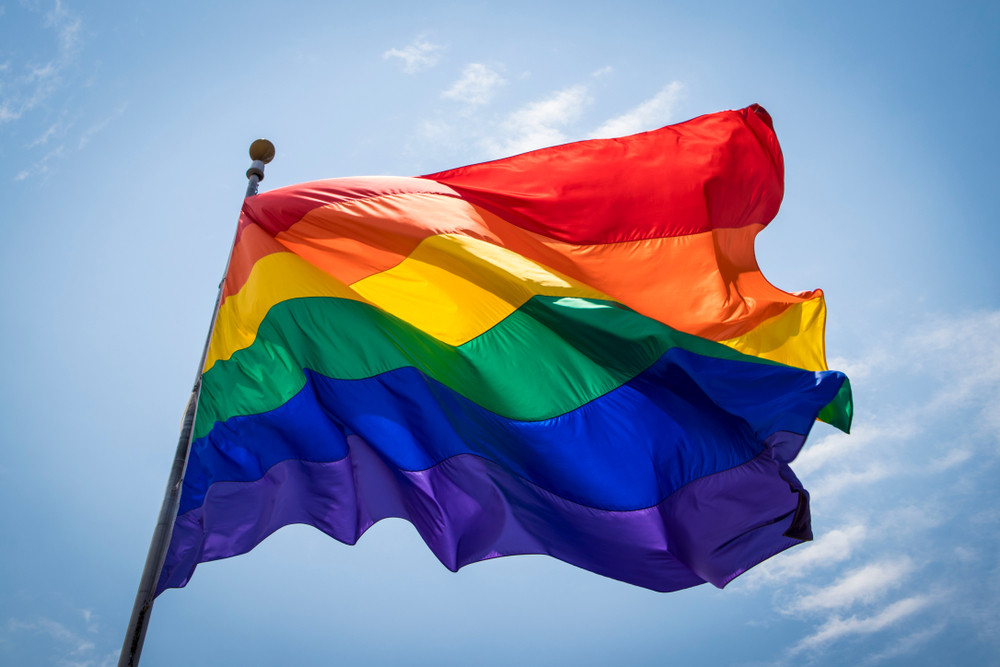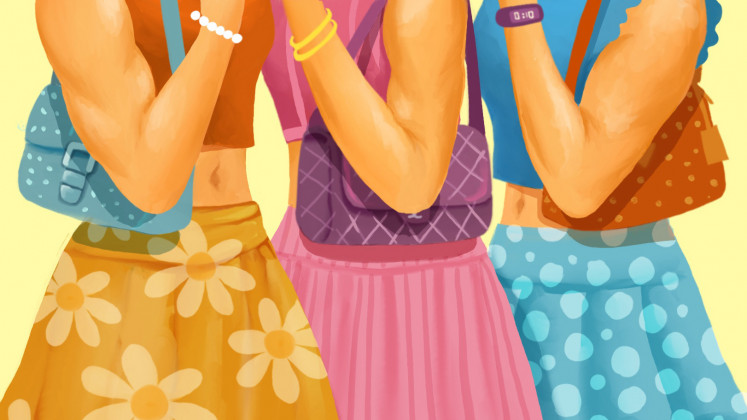Popular Reads
Top Results
Can't find what you're looking for?
View all search resultsPopular Reads
Top Results
Can't find what you're looking for?
View all search resultsThe Buddhist monk and make-up artist seeking LGBT+ equality in Japan
Change text size
Gift Premium Articles
to Anyone
D
uring a sheltered upbringing in a Buddhist temple in Tokyo, gay Japanese monk Kodo Nishimura kept his sexuality a closely guarded secret, and also concealed his burgeoning love of make-up.
Nowadays, Nishimura blends religious duties with work as a make-up artist, making him an unusual figure in socially conservative Japan, where same-sex marriage remains illegal and being openly gay is largely taboo.
The 31-year-old said his eventual decision to come out had been the "best weapon" to challenge homophobia, and he now hopes his autobiography will inspire more LGBT+ people in his country to openly embrace their sexual identity.
"If you're ashamed to show your difference, you can become vulnerable, but if you switch your attitude, your difference is your best weapon," he told the Thomson Reuters Foundation in a video call.
"When I was hiding my sexuality, people made fun of me. After I came out, I realized that there were so many cultures that celebrate LGBT+ communities. There's nothing wrong with it," he said, wearing a Buddhist robe.
Nishimura, whose parents were monks at the temple where he grew up, was ordained himself five years ago, but he also works as a freelance make-up artist for celebrities and at events including the Miss Universe pageant.
When not in Buddhist robes, he often appears wearing full make-up, high heels and fake eyelashes on his Instagram account, which has nearly 60,000 followers.
Japanese monks are allowed to pursue a career outside their religious duties, but Nishimura's choice of profession and his LGBT+ advocacy work have made headlines in Japan and raised his profile as a spokesman on gay rights issues.
Thousands of copies of his Japanese-language autobiography have been sold since it was published in late July, and discussions are under way to translate it into other languages.
He has given speeches in universities and at the United Nations office, and last year appeared on an episode of Netflix reality TV series Queer Eye.
Read also: 'Queer Eye' star Antoni Porowski calls out Poland's 'absurd' anti-LGBT+ crackdown
'People pay more attention'
Nishimura said there was no contradiction between his different roles, instead seeing them as complementary.
"Being a monk people pay more attention to what I say," he said.
"Japanese monks are not known for wearing make-up or heels, but I want to use this platform to highlight the fact that you can be whoever you want regardless of your status or occupation."
Nishimura said he decided to come out after spending time studying in the United States and starting to work with make-up.
He has not received any backlash from within his Buddhist community, although he said he sometimes receives comments and messages mocking him on social media.
Despite widespread conservative attitudes, Japan's laws on LGBT+ issues are relatively liberal compared with many Asian countries, with gay sex legal since 1880.
But although about two dozen cities, towns and wards issue same-sex partnership certificates, LGBT+ rights campaigners say they lack legal standing and prejudice persists.
That spurred Nishimura into writing his book, which recounts his transition from feeling "lonely and inferior" to becoming the person he is today.
He said he hoped his story could raise awareness and spark discussion about LGBT+ rights issues.
"Once people start to learn about diversity, the laws (for LGBT+ rights) will follow," he said.











